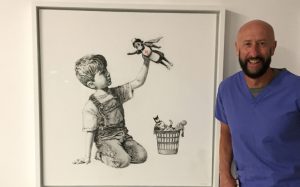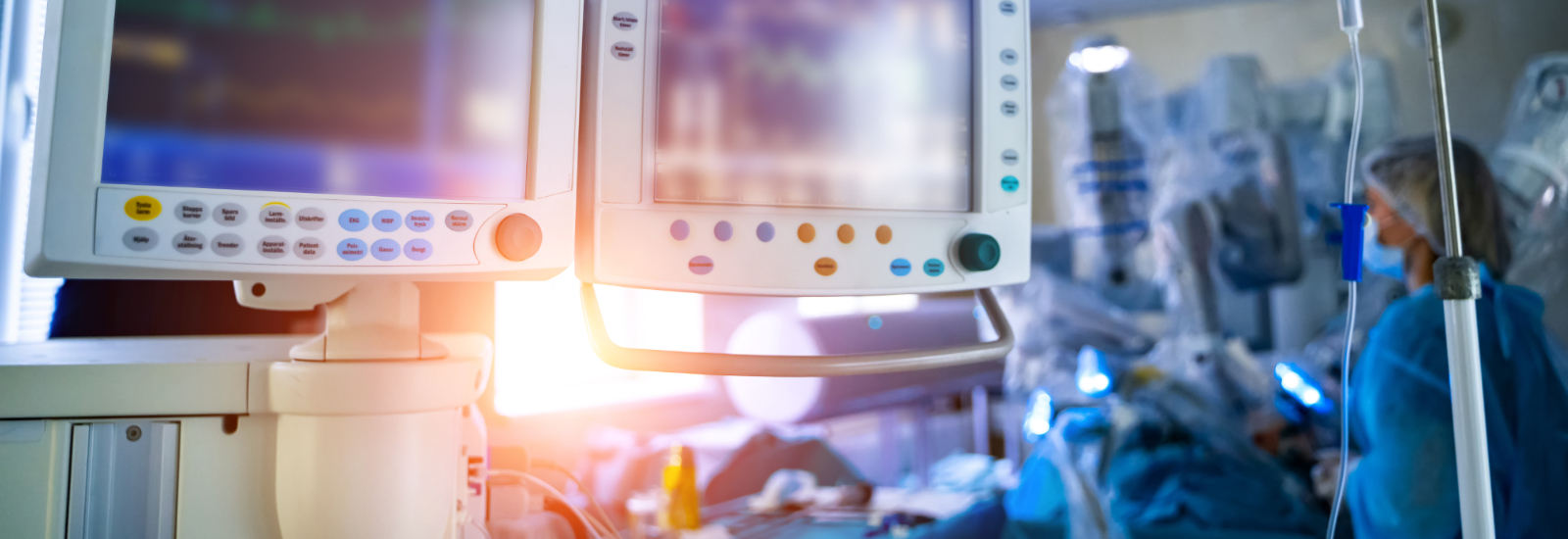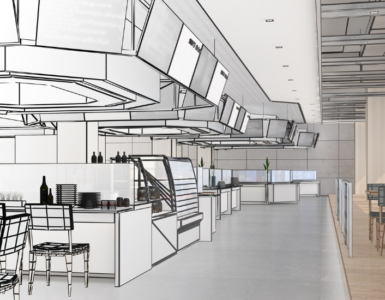When the COVID-19 outbreak began, Reading graduate Ivan Kemp knew his role as a Critical Care Pharmacist would be impacted. Despite facing many challenges, Ivan feels honoured to be part of the NHS effort.
Ivan currently works at University Hospital Southampton within a team of seven Critical Care Pharmacists, with provision for up to 100 intensive care beds. Ivan speaks to CONNECTED about the changes COVID-19 has created within his hospital, the struggles they’ve faced, and how he feels about being part of the global fight to beat COVID-19.
Taking his career to another level
Ivan’s career began as a gym instructor, managing patients referred by GPs. This sparked an interest which led him to become a Critical Care Pharmacist and also gave him a solid background for embarking upon this career.
 He said: “My fitness background had given me knowledge of the cardiovascular and respiratory systems – which are the two main organ systems Intensive Care Units (ICUs) give supportive care to – and I had a strong understanding of nutrition which goes hand-in-hand with the role of Critical Care Pharmacist. After studying for my pharmacy qualifications at the University of Portsmouth and University College London, I studied my Independent Prescribing qualification at the University of Reading.
He said: “My fitness background had given me knowledge of the cardiovascular and respiratory systems – which are the two main organ systems Intensive Care Units (ICUs) give supportive care to – and I had a strong understanding of nutrition which goes hand-in-hand with the role of Critical Care Pharmacist. After studying for my pharmacy qualifications at the University of Portsmouth and University College London, I studied my Independent Prescribing qualification at the University of Reading.
“My course at Reading was a six month postgraduate programme designed to accredit pharmacists as independent prescribers within their scope of practice.
“I chose to study at Reading because the course had a good reputation and used multiple teaching platforms, including practice-teaching days, self-directed study time, assessment and workplace-based learning.
“This qualification has broadened my role extensively, allowing me the autonomy to prescribe for the patients I am caring for, which ultimately facilitates safe and effective prescribing in a timely manner.
“My time at Reading particularly helped in regards to my self-development. The course made me reflect on my own practice and how it compared to others, and it was great to work, share thoughts and experiences with other speciality pharmacists and specialist nurses.
“Becoming a prescriber takes your clinical status and ability to another tier, bringing you even closer to patient-focused care which is extremely rewarding.”
The impact of COVID-19
Ivan and his colleagues have had to rapidly adapt to the new landscape created by COVID-19, whilst still prioritising their patients.
He said: “As a Critical Care Pharmacist I work in ICUs prescribing and ensuring safe and effective administration of medication, providing clinical pharmacy information to consultants, and conducting nutritional ward rounds amongst many other responsibilities. Because my work is within the Critical Care sector, we have been impacted hard by COVID-19.
“Treating COVID-19 positive patients has been incredibly high-pressured. These patients are clinically more complicated and require greater treatment time, with sometimes unclear treatment options.
“We’ve had to tease out feasible solutions for our patients, whilst also facing logistical issues with medication as demand overtook supply. Intense scrutiny of essential stockholding, seeking alternative pharmacological agents and employing minimal medicines wastage strategies were always a huge daily priority, but even more so during COVID-19.
“We also had to adapt our ways of working to protect ourselves. This included the donning and doffing of Personal Protective Equipment [PPE] when visiting and leaving COVID-19 ICU wards, and also changing into and out of our scrubs upon arrival and departure from work. There have also been social distancing measures implemented, with changes to office space and restrictions on the use of eating areas and coffee shops. These measures are designed to protect the patient, ourselves, and people we might come into contact with outside of work.
“One of the impacts of COVID-19 for me on a personal level is the increase in hours worked and the struggle to maintain a semblance of a work to home life balance.
“However, I’m proud that I – and the whole team – have been able to do our very best in a very challenging situation.”
Innovative solutions
Ivan says that despite the level of challenge, he is impressed by the innovative ideas that have been found to overcome such problems.
He said:
“We had to discover how to remain effective at delivering high standards of care without compromising our own safety and those of colleagues and patients. The biggest change to achieve this has been an accelerated use of electronic solutions and platforms.
“Technology has enabled us to avoid entering an ICU area that requires full PPE unless absolutely necessary. ICUs were already using an electronic prescribing and clinical notes platform, so access to that can now be from anywhere – including remotely – and I was issued a laptop enabling me access to all electronic platforms. We’ve also been using video-conference platforms for meetings and have been delivering consultant-led clinical care away from the ‘bedside’ through remote ward rounds.”
A privilege to work for the NHS
Ivan feels honoured to be part of this exceptional effort in the face of adversity.
He said: “Throughout the pandemic there has been such a cohesive approach to doing everything to the best of our ability, no matter the enormity of the task. This has been our ethos and mantra both from our immediate team, right through to the Trust’s approach as a whole. I think ‘pride’, ‘innovation’ and ‘adaptation’ are the words that will always encapsulate my feelings about how we felt during the COVID-19 outbreak.
“Every single person who works for the NHS has patient care as their utmost priority. This collective approach is highly motivating and contagious.
“My speciality always keeps me focused and driven through the constant need to optimise, problem-solve and get the very best out of the critical medications to ensure that the patient is receiving the highest level of care.”
Find out more about how our other incredible alumni are contributing to the fight against COVID-19.







Comment